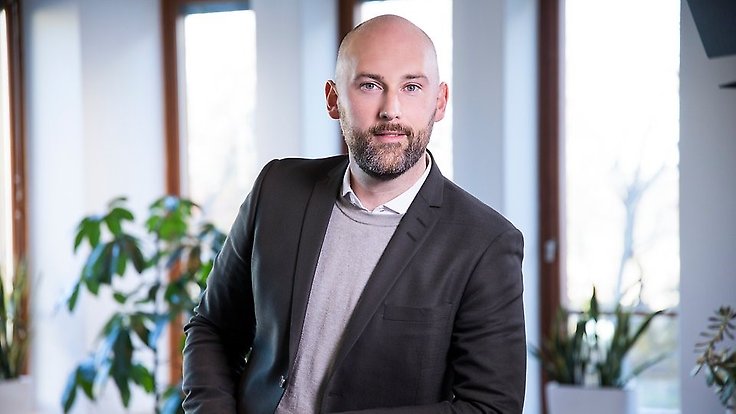Formas is providing funding to shape a future that is free from toxicity and pollution

John Tumpane, Head of the Department of Environment at Formas
Investments in the impact of climate change on pollution are needed to achieve a chemical-safe future, and we need new research with a one-health approach and strengthen our science-to-policy mechanisms to fight chemical pollution, according to John Tumpane, Head of the Department of Environment at Formas, one of Uppsala Health Summit 2023’s sponsors.
Formas is a Swedish government agency for sustainable development. Formas facilitates change by funding research and innovation for nearly SEK 2 billion each year with a focus on climate change, agriculture, the environment, and sustainable societies.
We also do our own studies and systematic reviews to help guide evidence-based decision-making", says John Tumpane, Head of the Department of Environment, Formas.
This year, Formas is sponsoring the Uppsala Health Summit with the theme of Chemical Pollution and One Health. John Tumpane explains that it is one among several projects in the field of chemicals and pollution they are focusing on.
Any research to do with chemicals and pollution connected to the natural or built environment can be funded by us. This can include the effects of chemicals, metals, or any other environmental pollutant on the environment as well as on human health. In recent years, we have also had targeted calls to strengthen specific areas. Through these calls, we have funded projects that will contribute to more knowledge on combination effects and, more recently, also projects aiming to strengthen collaboration to enable to work towards resource efficiency and the Swedish environmental goal of a non-toxic environment simultaneously", says John Tumpane.
Uppsala Health Summit 2023’s title is Chemical Pollution and One Health - from Reactivity to Proactivity. John Tumpane tells us his view on what this means in the context of chemical pollution.
Looking back, we know that chemical pollutants have been, and still are, causing damage to both human health and the environment. We need to do what we can to prevent that in the future. This means we need to work with three strands simultaneously: dealing with our historical sins, tackling emerging pollutants and novel entities, and ensuring we avoid unnecessary risks while accelerating the green transition. It also means tackling complex issues head-on and with a systems perspective. A one-health approach is imperative but also acknowledges the interlinkages with, for example, climate change, land use, consumption, electrification, new materials, etc. For that, we need new knowledge through research, innovative solutions that go beyond technical innovations, and robust science-for-policy mechanisms", says Tumpane.
"To accelerate the transition and at the same time ensure a chemically safe future, we see three broad areas where more investment in research and innovation is needed"
What specific type of research would you like to see an increased emphasis on within this field?
We live in a changing world, with climate change, green transition, and new industries that follow. To accelerate the transition and, at the same time, ensure a chemically safe future, we see three broad areas where more investment in research and innovation is needed", says Tumpane.
According to John Tumpane, the areas in need of investments are:
- Next generation of risk assessment
- Enabling a circular and chemically safe economy
- The impact of climate change on pollution
We see that a variety of instruments and types of research and innovation will be needed to achieve this, including broad collaborations and more cooperation between research fields and, not least, cross-sectoral initiatives", he continues.
How can a better, more meaningful collaboration be created between decision-makers, industry, and the research community on these complex issues?
We see that broader research collaborations are needed to increase knowledge exchange and enable proactive work to be carried out. For this to happen, researchers from different disciplines need to collaborate, but co-creation and co-production between researchers, industry, and policymakers are also essential. We need to increase collaboration and movement between different sectors. New instruments may very well be needed, such as policy labs, support for validation studies, etc. We also firmly believe in co-creating, and our own funding priorities are the result of extensive consultation with researchers, regulatory agencies, businesses, and NGOs", says John Tumpane.
"I hope the summit will sow the seeds of solutions and ideas of what is needed now to be able to act proactively in the future to achieve a chemically safe environment"
Finally, could you share your expectations and hopes for the upcoming Uppsala Health Summit?
This conference gathers a wide audience, and my hope is that it will lead to increased collaboration beyond traditional areas of interest, maybe some unexpected collaborations. I also hope it will sow the seeds of solutions and ideas of what is needed now to be able to act proactively in the future to achieve a chemically safe environment", says Tumpane.
